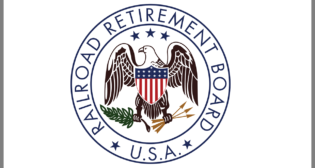
Fifth of a Series: NJT Gets Five-Year Reprieve
Written by William C. Vantuono, Editor-in-Chief
The last week of June was an eventful one for New Jersey Transit (NJT) and its riders. On the negative side, service on the portion of Amtrak’s Northeast Corridor (NEC) in New Jersey and gong to Penn Station New York (PSNY) has been disrupted lately, making it difficult for commuters and other riders. This is true for many NJT lines, because they use the NEC to access PSNY. Trains on the agency’s Trenton line run entirely on the NEC. Along with those problems came a 15% fare increase, which has just gone into effect.
Riders and their advocates complained about the hike, which is the first in nine years, but the agency said it was needed to fill a $106 million budget shortfall, so those pleas had no effect. Yet, there was good news for the agency, which came in the form of the new $56.6 billion state budget that the legislature passed, and Gov. Phil Murphy signed just before the end of June. Not only did the timely performance of elected officials avoid a shutdown of state government, but it also gave the struggling transit agency some badly needed funding for the next five years.
That reprieve will dedicate the revenue from a tax on the state’s wealthiest corporations, those which had profits of more than $10 million per year. That should include about 600 companies. The tax, which Murphy proposed in his budget message to the legislature on Feb. 27, would add 2.5% to the existing corporate tax for those entities. Allocated for NJT, it was similar to a former corporate tax surcharge passed in the wake of the Trump Administration’s corporate tax cuts of 2017 and expired at the end of last year. It affected more businesses than the new proposal, those with $1 million or more of income.
Murphy drew criticism from rider advocates for allowing the former tax to sunset and then proposing the new and similar one less than two months later. Business groups fought the measure fiercely, claiming that it would drive businesses away from New Jersey. Despite opposition from the corporate sector, an October 2023 poll taken by Fairleigh Dickinson University noted strong public support for the measure, especially among Democrats. That party controls the state administration and both houses of the legislature.
Yet it did not seem feasible that the transit agency could meet its operating costs without some sort of new revenue source. Among transit providers, NJT has suffered for not having a dedicated source of funds, which forced the agency to beg the legislature and the governor (who appoints most Board members and the agency CEO) for money every year. Many riders and advocates complained about the newly implemented fare increase, but NJT claimed it is necessary to keep service going for Fiscal Year 2025, which started July 1. For FY26, which starts one year from now, the agency’s projected shortfall would skyrocket to an amount estimated to be at least $750 million and perhaps as high as $1 billion. The reason was that the COVID-19 relief money that Congress authorized at the height of the pandemic was effectively a one-shot, as we’ve reported. It helped keep transit agencies around the country going as ridership fell sharply, but that money will soon run out. It would have been impossible for NJT to raise that amount from the farebox, no matter how much fares could be increased and no matter how many cost-saving measures could have been implemented.

Colleen Wilson reported in the June 29 Bergen Record: “Every dollar collected during the five-year window for the tax, which includes retroactively applying it to Jan. 1 of this year, will go to NJ Transit, according to the bill that passed both chambers of the Legislature on Friday. Murphy’s original proposal would not have started sending revenue to NJ Transit until fiscal year 2026 and was seen as one of the reasons a 15% fare hike starting July 1 was still necessary.” Wilson also reported that the new levy is expected to raise $800 million per year for the agency. With the annual 3% fare increases that the agency will impose starting next year, it is still too early to tell if the revenue from the new tax will be enough to sustain the current level of service, much less add service that riders and advocates want.
Wilson’s report continued: “While Murphy’s original proposal would not have included a five-year cap on the tax—which will be 2.5% on corporations that earn more than $10 million—that was the deal ultimately negotiated with state Senate President Nicholas Scutari and Assembly Speaker Craig Coughlin in the waning days of June.”
In a June 28 report for Politico, Daniel Han raised the subject of Gov. Kathy Hochul’s recent decision to stop the proposed Congestion Pricing toll for vehicles entering Manhattan south of 60th Street: “The proceeds from the new transit fee would help fund NJ Transit, which faces a nearly billion-dollar funding gap. The new tax comes as the Metropolitan Transportation Authority is left scrambling to find money for its budget after New York Gov. Kathy Hochul abruptly canceled a congestion pricing plan in Manhattan, which was strongly opposed by Murphy because of its effect on New Jersey commuters.” According to Han, Murphy also noted the analogy. He quoted Murphy as saying: “You saw the drama that played out in New York City, in New York State, with the MTA, where they were going to rely on third parties, essentially, to solve their fiscal challenge in the transit system. All of us committed that we wanted to solve our problems within our four walls, and sometimes that’s not pain-free.”
New Jersey’s corporate tax appears to avert a catastrophe a year from now, when the COVID-19 relief from the feds is projected to run out. It also sets a precedent for a continuing source of money that was established by the legislature and approved by the governor for NJT’s benefit, and available to help cover the agency’s expenses incurred in operating rail, light rail, bus and other transportation services.
Advocates for riders at the “professional” and grassroots levels have been calling for stable, secure and sufficient funding for the transit agency for decades. Now it is coming for the first time, but its long-term impact is not entirely clear. If it brings the projected $800 million annually into the agency’s coffers, that will keep the state’s transit going, probably at or near the current service levels. There could be some variation in the amount collected, and a low-collection year can result in service cuts, large fare increases or efforts to find money elsewhere.
In the long run, the budget provision is not the permanent funding source that advocates had wanted. It is not a solution, but a reprieve. Like its predecessor, this tax increase on the state’s largest corporations will expire five years from now. What will happen then is anybody’s guess. At least, for the time being, New Jerseyans will keep most or all the transit they have today. Business groups will still fight against any effort to keep the “corporate transit fee” in effect after the five years are up, and things are changing on the New Jersey political scene these days. Democrats will probably hold the legislature for some time to come, but the governorship flips back and forth between the two parties. Will 2029 be significant for NJT in the way 1929 was for the country? Time will tell.
We will head south to look at the situation at SEPTA in Philadelphia in the next article in this series.

David Peter Alan is one of North America’s most experienced transit users and advocates, having ridden every rail transit line in the U.S., and most Canadian systems. He has also ridden the entire Amtrak and VIA Rail network. His advocacy on the national scene focuses on the Rail Users’ Network (RUN), where he has been a Board member since 2005. Locally in New Jersey, he served as Chair of the Lackawanna Coalition for 21 years and remains a member. He is also a member of NJ Transit’s Senior Citizens and Disabled Residents Transportation Advisory Committee (SCDRTAC). When not writing or traveling, he practices law in the fields of Intellectual Property (Patents, Trademarks and Copyright) and business law. Opinions expressed here are his own.



